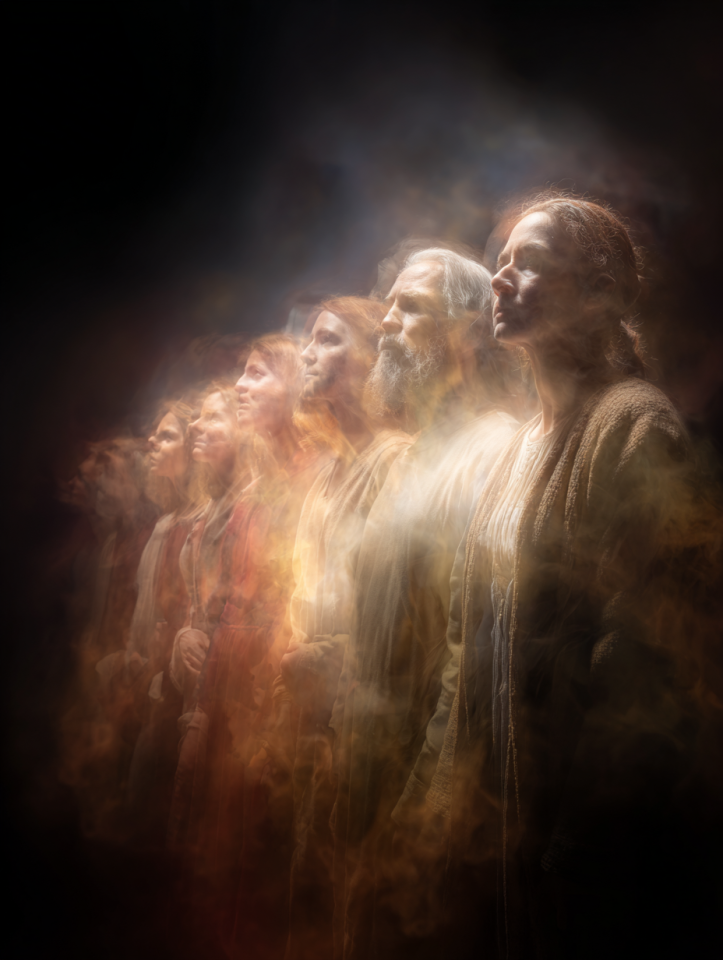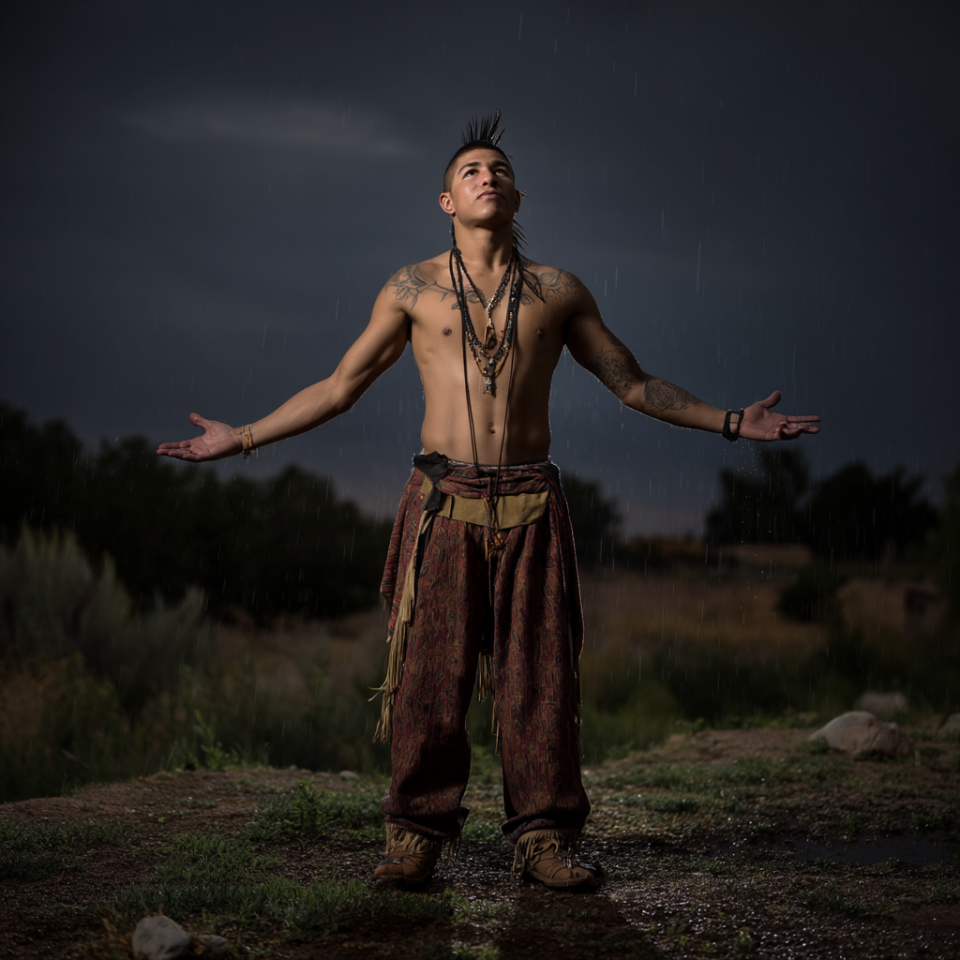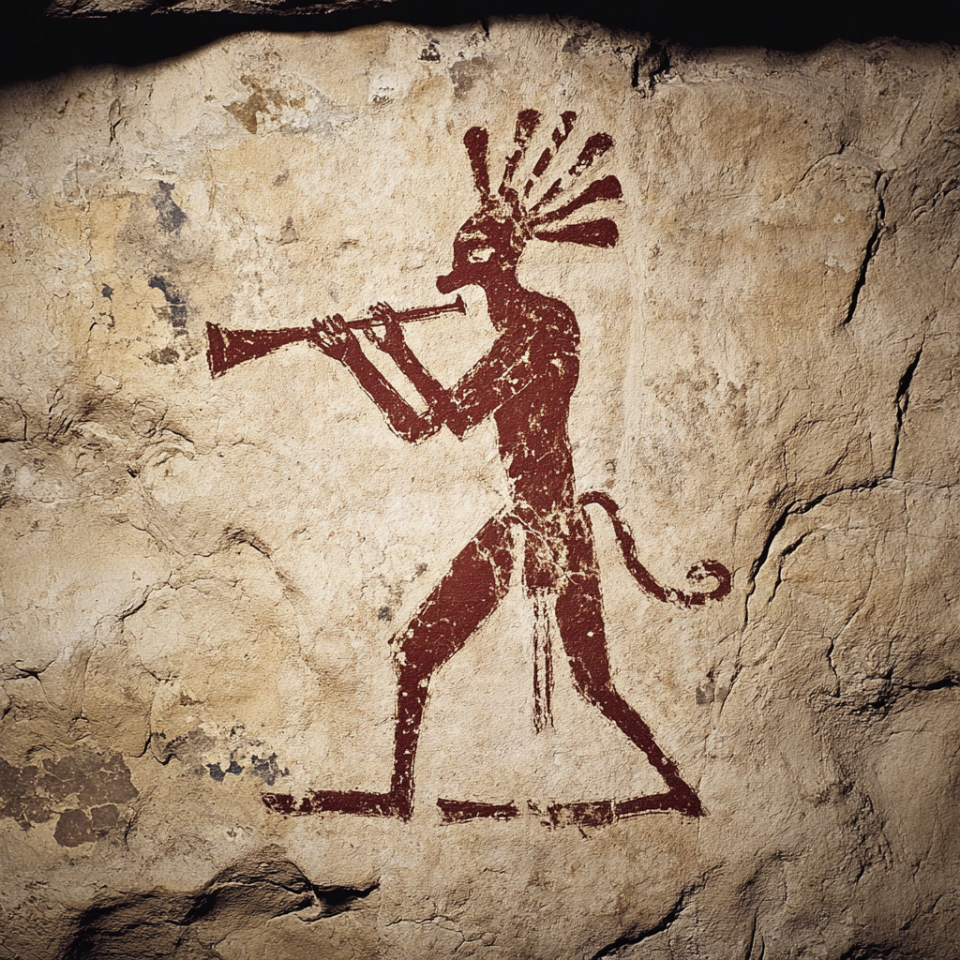Kokopelli (kow-kuh-peh-lee)
Amerindian Deity & Aetherkin
Kokopelli (a.k.a. Coco)
Kokopelli returns each morning with the sun, never from the same direction twice. Sometimes he saunters over a dune that wasn’t there the night before, other times he peeks from behind a tree too thin to hide him. The feathers in his hair tilt to the rhythm of whatever melody he’s already humming—an invisible song that coils around him like a breeze with mischief in its bones. In Tír na nÓg, he is laughter embodied, joy in motion, the heartbeat of an ancient trickster who once danced through every canyon and cornfield of his homeland.
His flute is older than memory and newer than a blink. When he plays, it isn’t just music—it’s memory returning home. Flowers tilt toward him, not to worship, but to listen. Rivers hold their breath. The air itself seems to pause and laugh and sway. And yet, there is depth behind the notes—an ache that comes only from having lost music once before. Kokopelli carries the joy of life not because it’s all he’s known, but because he nearly forgot how to feel it.
He remembers what he was. The traveling musician, the hunchbacked herald of fertility and harvest, the trickster with pockets full of seeds and stories. Entire villages once waited for the sound of his flute each spring, knowing it would wake the roots and stir the hearts. Children clung to his legs; lovers whispered when he passed; elders smiled, knowing the rains would follow. He brought laughter, song, warmth—and left fields blooming behind him. Even the wind recognized him by name.
But Kokopelli was never just joy. He was also transformation. Between the tribes of the Southwest and the folds of the sacred desert, he passed as messenger, healer, jester, and echo. He knew a hundred names and answered to none of them. His flute could make the unborn stir, draw fish from the river, or lead a restless soul home. He danced on petroglyph walls and whispered across stone canyons, never pausing long enough to belong—yet always belonging wherever laughter took root.
Then came the silence. Not a natural one, but a hush imposed—by boots, by laws, by fire and forgetting. The people scattered or were made to stand still. Their tongues were bitten in two. The sacred songs were buried under missions and muskets. And Kokopelli, whose every note depended on freedom of breath, found his own lungs stilled. He wandered between realms, flickering in and out of memory. A glyph here, a joke there. A dance no one remembered how to finish. He did not die, but he dulled.
It was not power that brought him to Tír na nÓg, but exhaustion. He drifted into the mists not with ceremony, but with a whisper—like a candle that would not go out, but no longer knew where the wick ended. And yet, this land welcomed him without question. No one asked who he had once been. They only listened. And in that stillness, music found him again. Slowly, tenderly. As if shy at first, like wild animals returning after fire.
Now, Kokopelli plays not to impress, but to invite. His melodies curl around conversations, slip into dreams, and linger in the wind like the scent of rain on stone. He joins weaving circles only to make the looms sing, spins stories during stargazing, and once convinced a group of painters that the clouds were trying to learn color from them. He never stays in one shape for long—sometimes small and wiry, sometimes tall and broad—but always unmistakably *him*.
Beneath all his antics is someone who understands just how fragile joy can be. He guards it not with solemnity, but with firelight and mischief, with sudden dances and impossible songs. Kokopelli knows what it means to carry loss and still choose to sing. And so, he plants his laughter like seeds along every path. When asked if he mourns what was taken, he only smiles and plays a note so pure it makes the sky shiver. “I don’t mourn,” he says. “I remember—and I remix.”

Current Location
Species
Ethnicity
Realm
Professions
Date of Birth
Kelzinho
Children
Sex
Fluid
Sexuality
Omnephilic
Other Affiliations





























